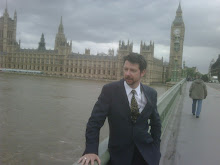Without giving anything away, an austerity budget has forced the Sykfall producers to focus more on character and dialogue rather than the usual reliance on big set piece stunt action.
The result is a witty, grown-up script with brilliant nostalgic nods to the 50 years of Bond movies, and a little flavour of the original novels written a decade earlier. Don't worry, there is plenty of action, but like the gadgets, it is of a more back to basics variety.
Noticeably the CIA don't get a look in. There is no Uncle Sam to haul the little British cousin out of a tight spot. Istanbul and Shanghai appear, old Bond stamping grounds, but the most evocative locations are a wintry London and the wild grandeur of Glen Coe.
What struck me at the end is how homegrown it all felt. The Times film critic, Kate Muir, called a big British bulldog of a movie. And it was - a china bulldog is even one of the motifs of the script.
Unconsciously, but probably not, director Sam Mendes tapped into that unexpected feelgood wave of Britishness that infused the damp Diamond Jubilee and coursed and sparked through the Olympics.
But Mendes hasn't let that mood die with the tattered bunting. He's taken the spirit of the UK in 2012 and sewn it permanently and cleverly into popular film culture.
In an age of British identity politics Skyfall turns out to be very now - none more so than in a scene when Bond is being drilled by a M16 psychiatrist in a quickfire word association game. "Country?" the analyst asks him. "England," replies Bond.
But ten scenes later the spy's home turns out to be Scotland where a whole chapter of the film, and a lot of James Bond's backstory, is played out. The film comes to a close, order restored, with a worldweary Bond back in London, atop the National Gallery*, looking south across Whitehall and a sea of British flags.
Bond, then, captures much of the multilayered sense of modern Britain - country, England; home,Scotland; flag British.
When I tweeted that symbolism on Friday night cybernatspace hyperventilated with fury, which was pretty rich given how much the nationalist cause has dined out on the Sean Connery/Bond persona for the last four decades.
Fictional characters don't vote but culture does shape politics and Bond is back and he's big, but Braveheart he isn't.
It could almost be a conspiracy. Alistair Darling, playing a platinum-haired master villain lurking in his Better Together bunker, couldn't have scripted a Bond story more sympathetic to his cause.
* I'm told that's not the National Portrait Gallery in the pic, its the roof of the Department of Energy and Climate Change in Whitehall Place. An old M16 haunt, apparently.





No comments:
Post a Comment